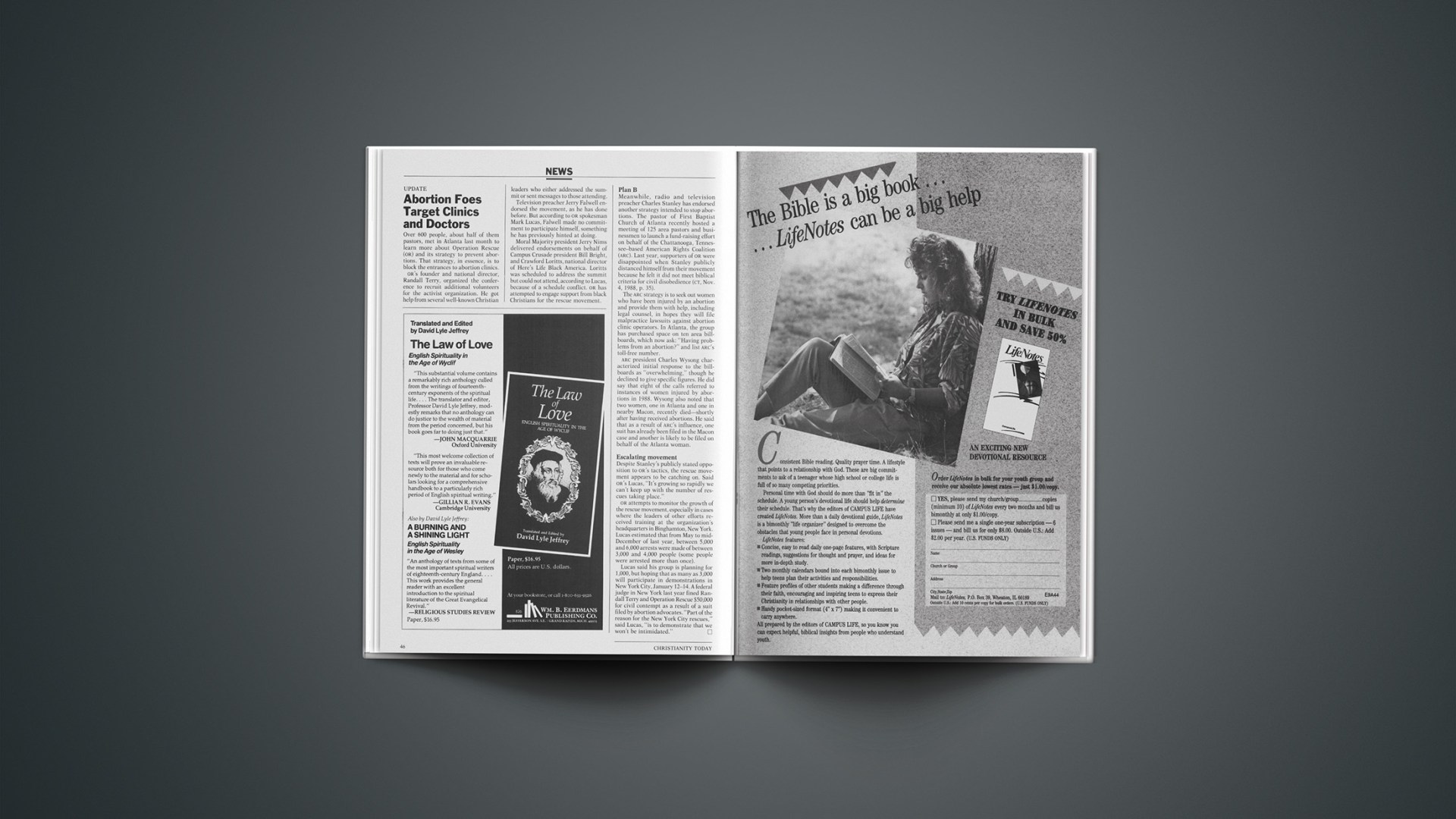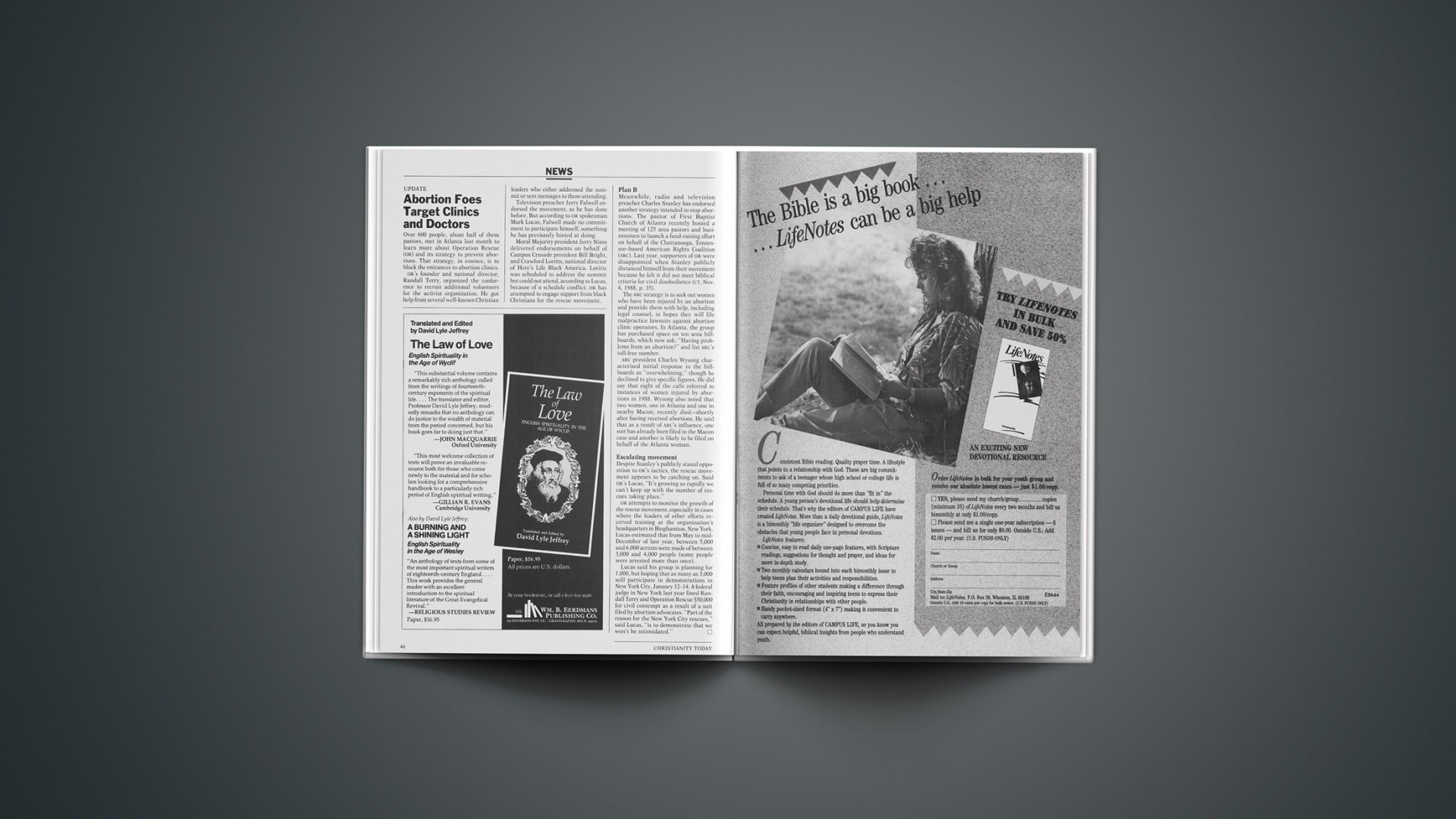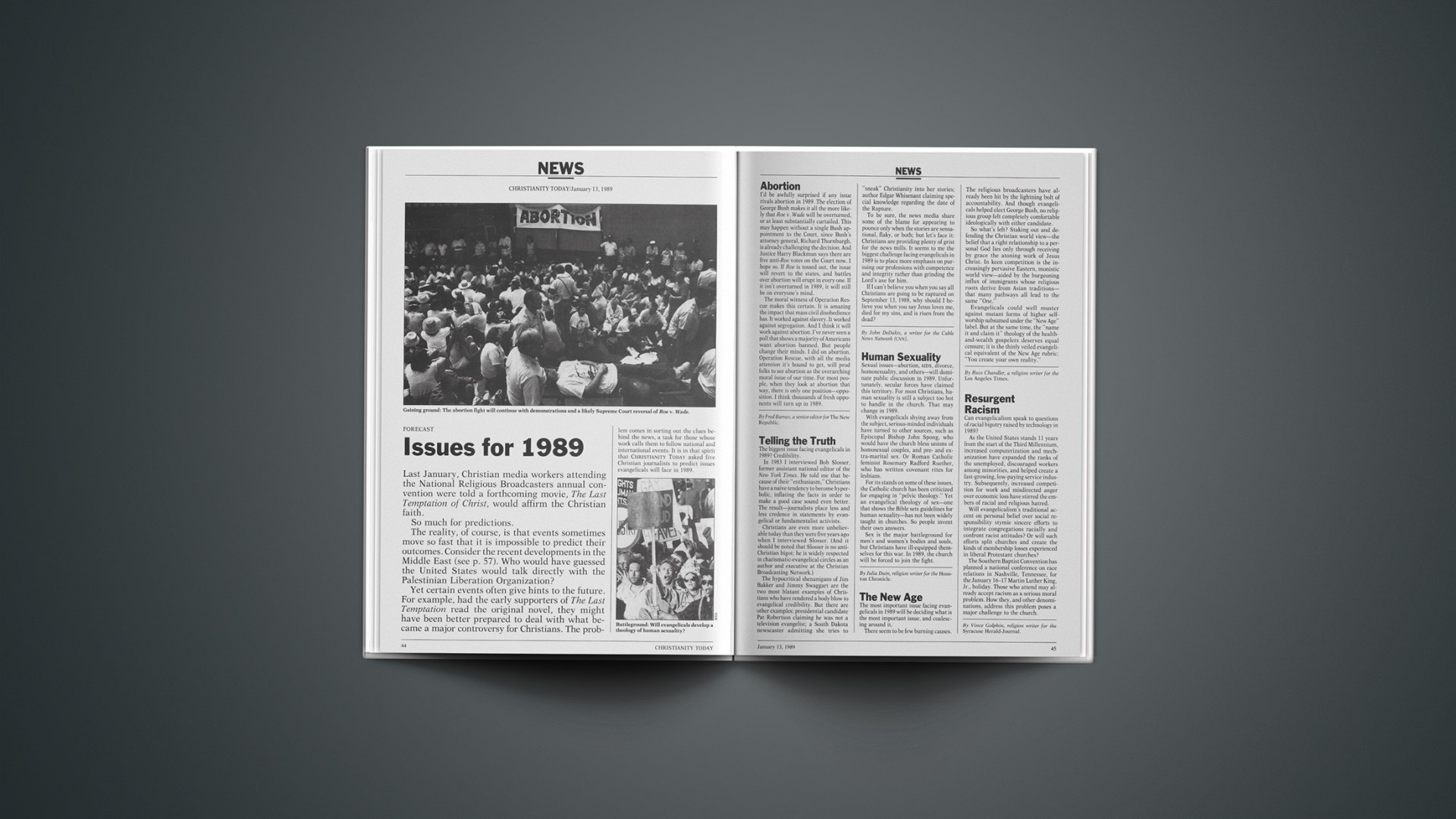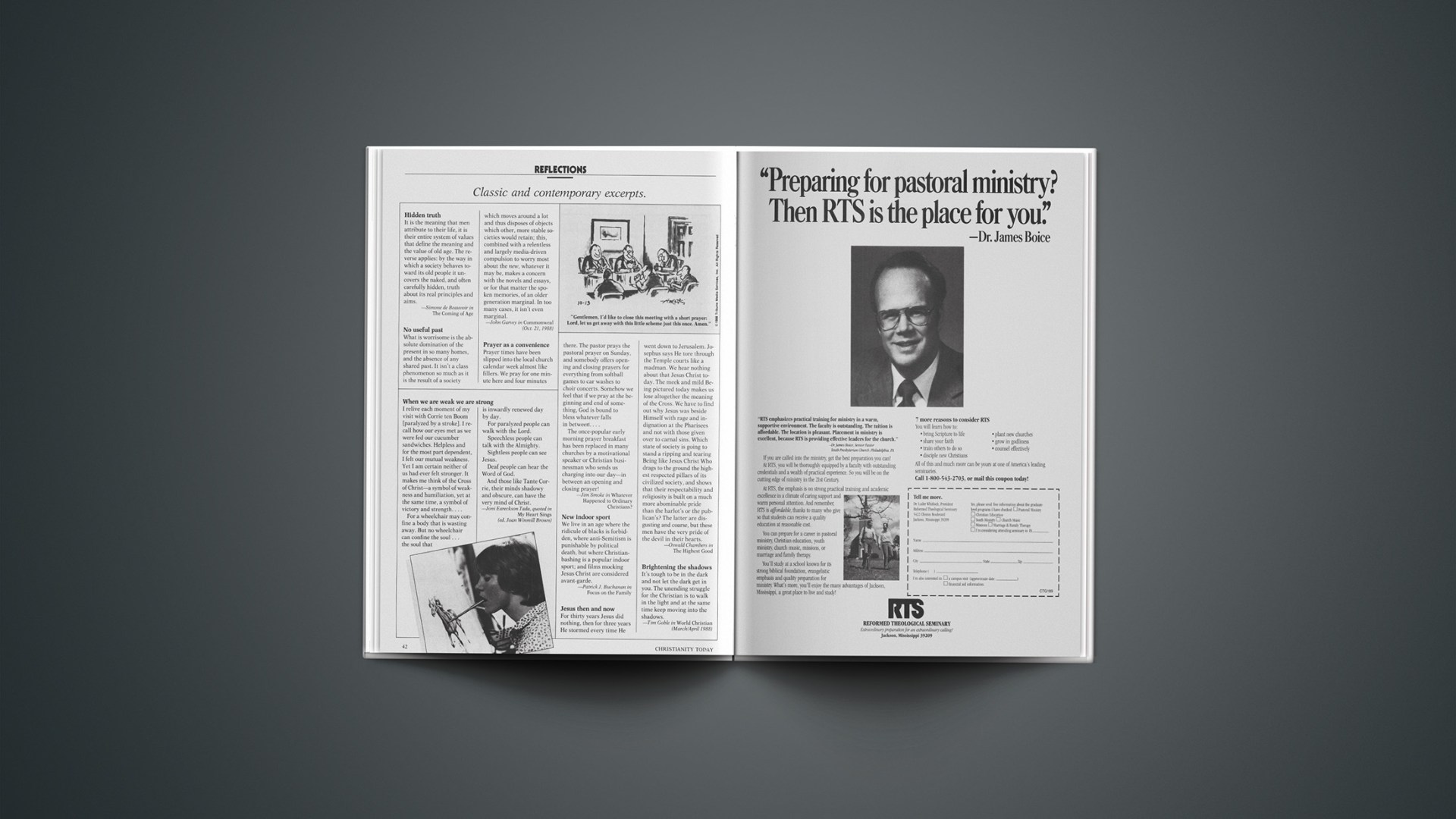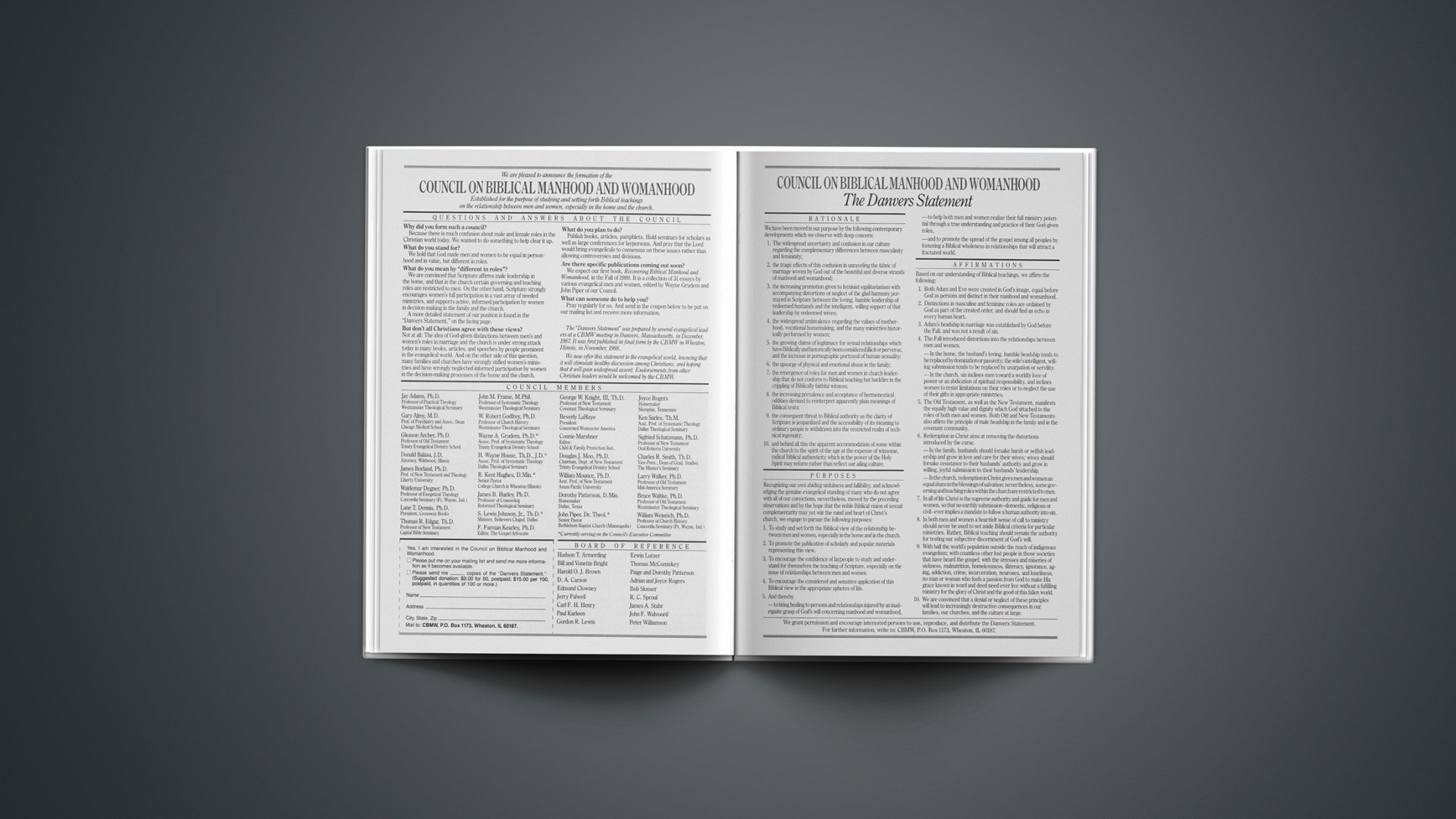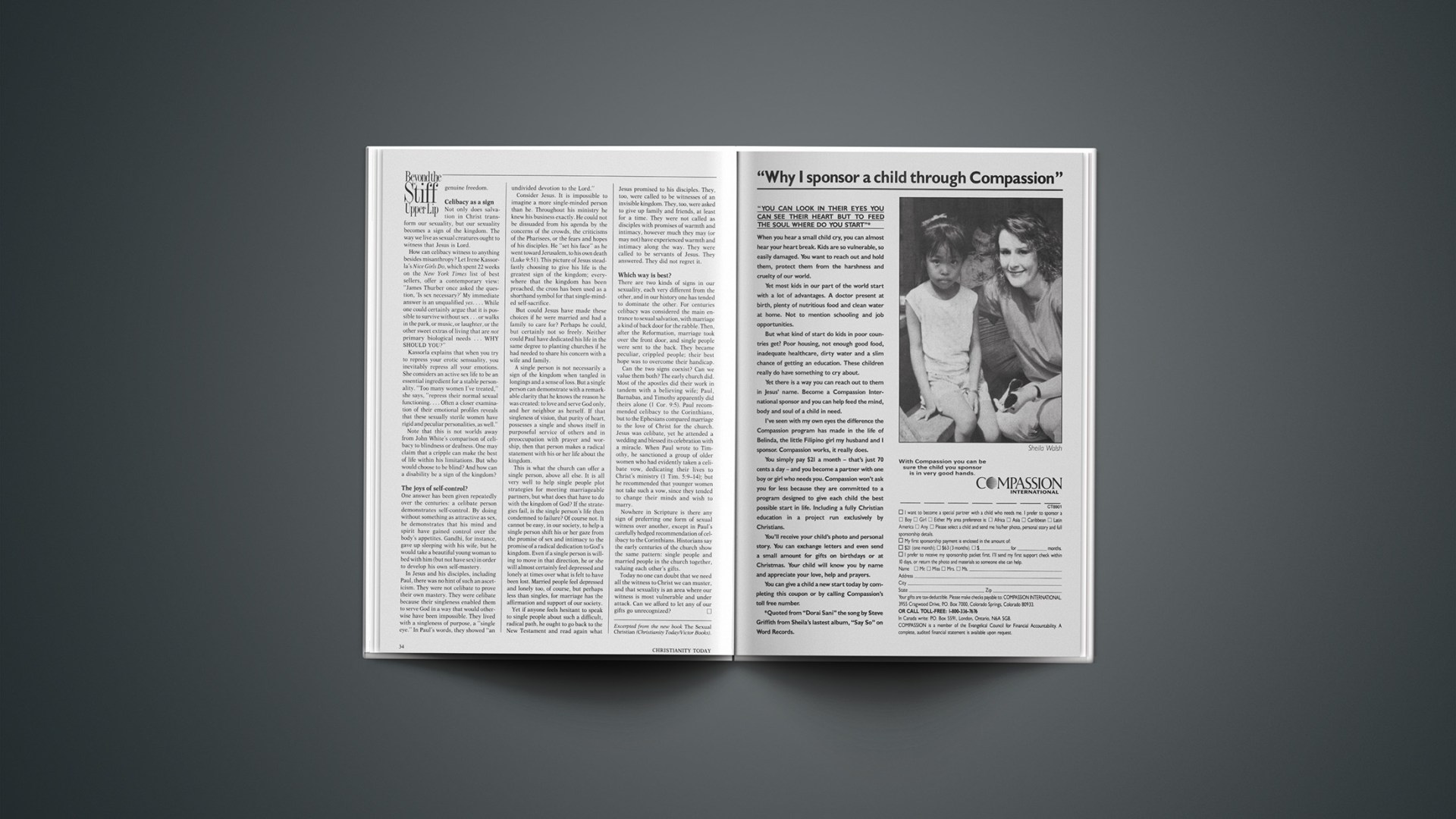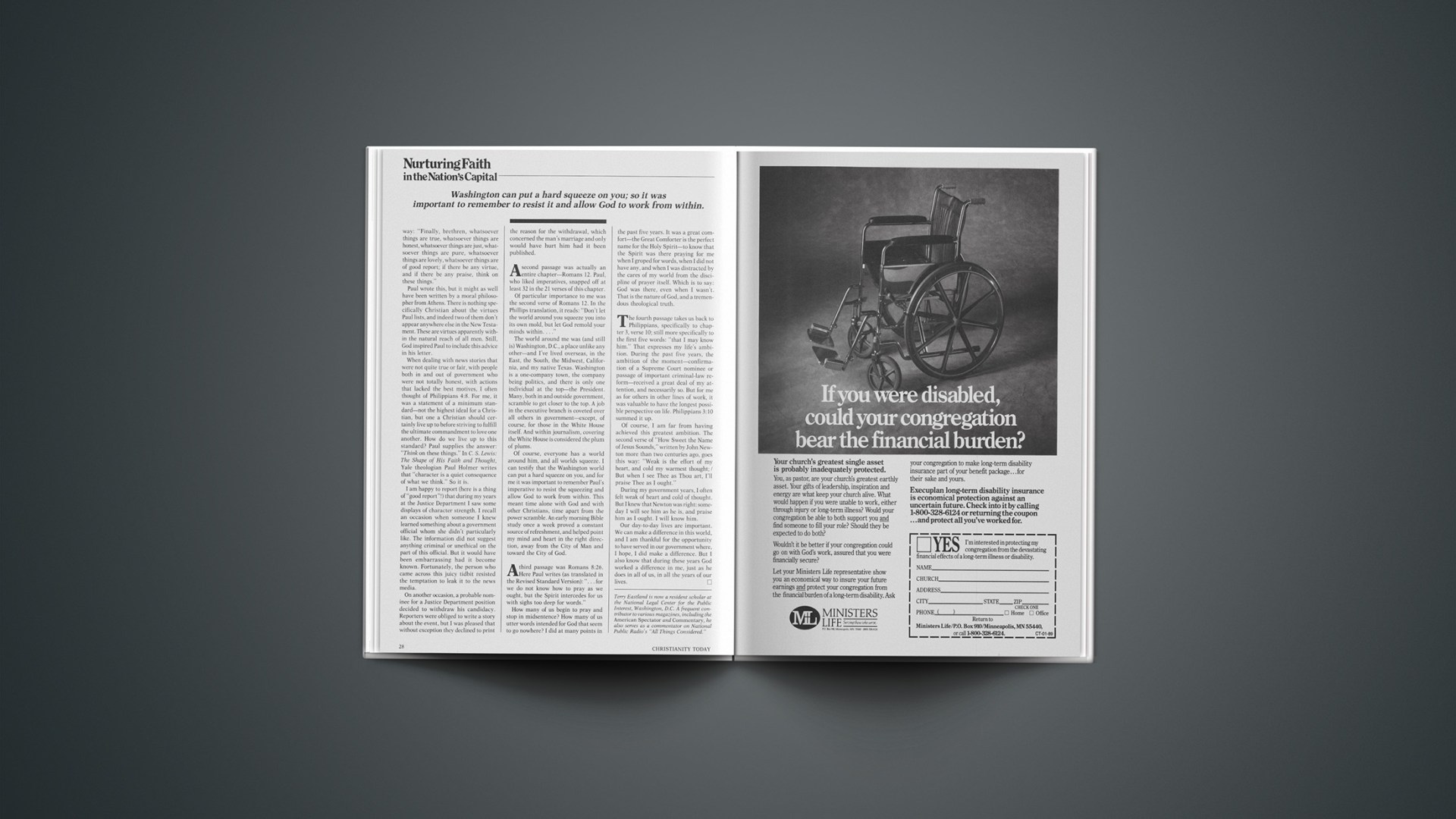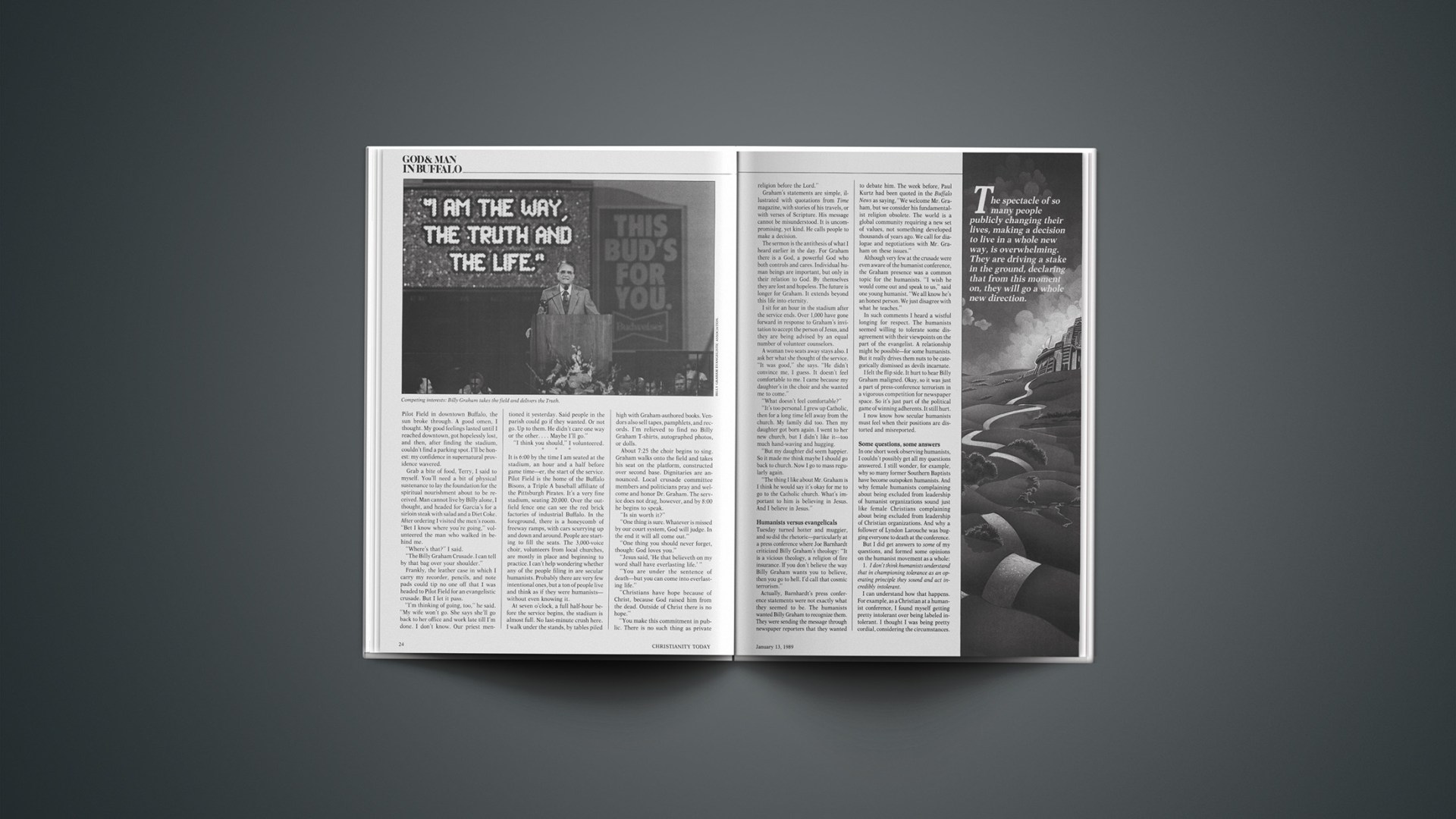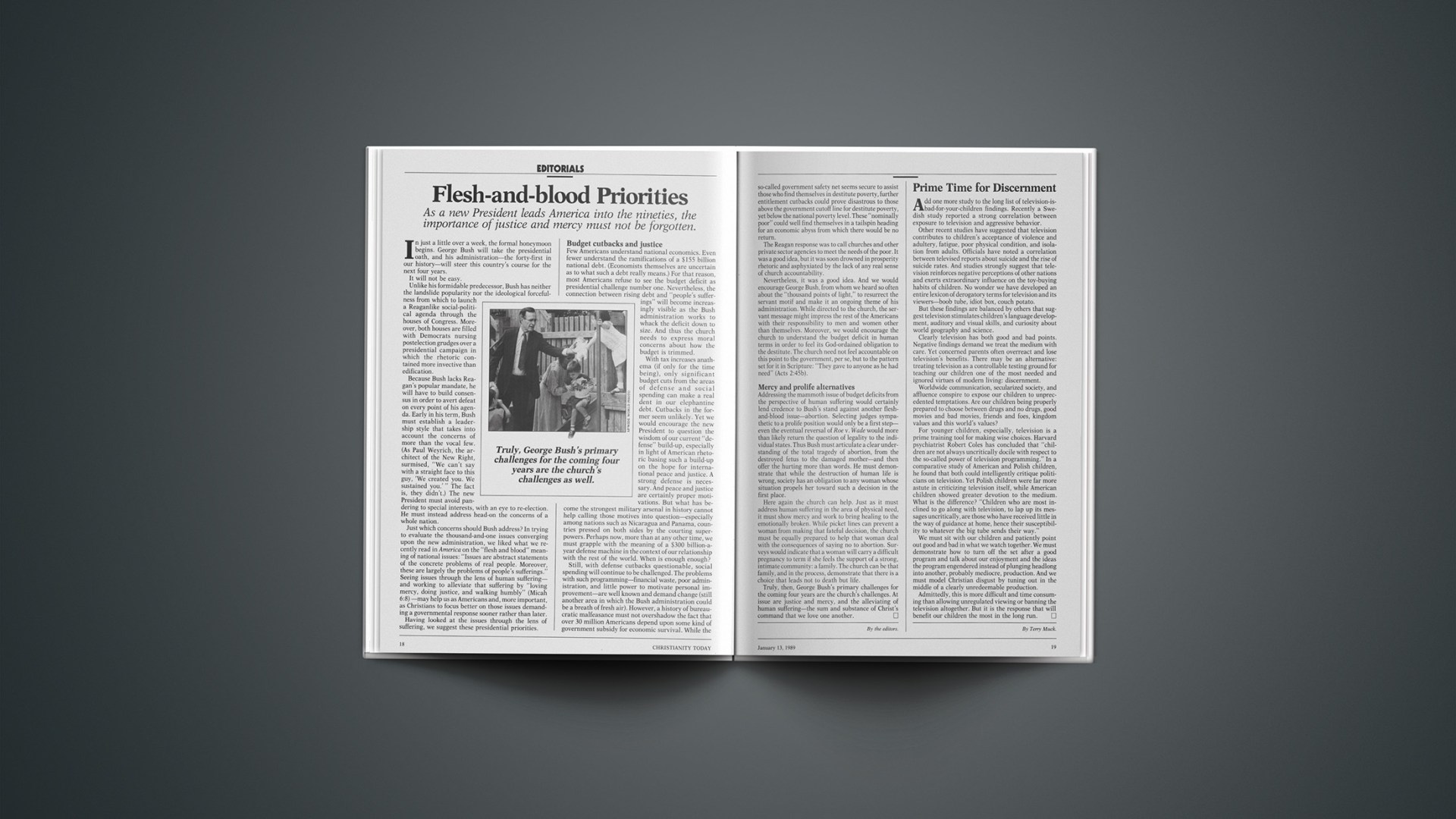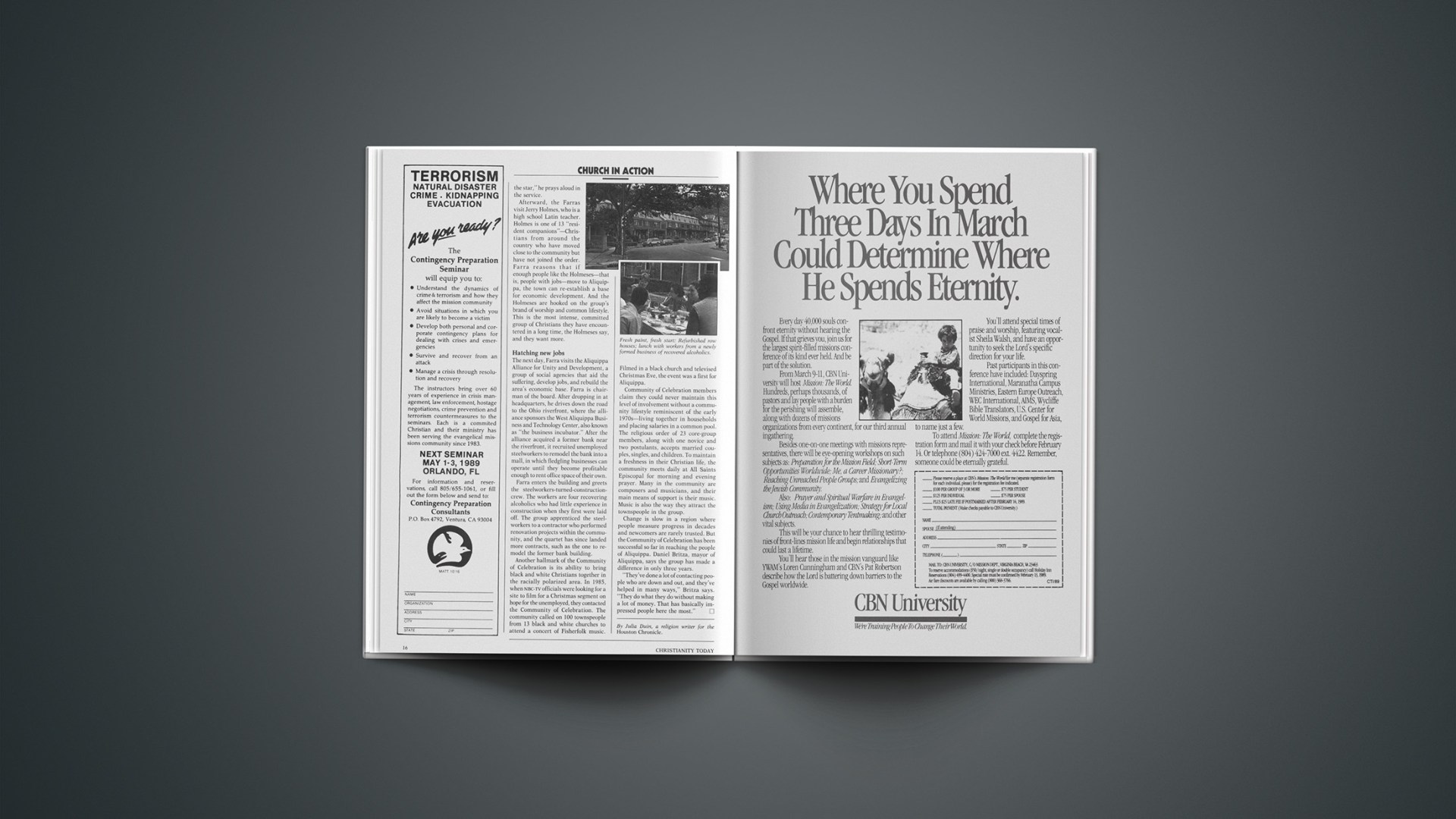From its inception in 1951, the National Council of Churches (NCC) hoped to be the corporate voice of American Christianity—an arm-in-arm coalition that would seek to inject Protestant morality into the nation’s conscience. Indeed, when media pundits wanted to know what Christians thought about something, they called the NCC’s offices on Riverside Drive in Manhattan—nicknamed the “God Box”—for a good quote.
Entering 1989, however, those callers are asking a new set of questions. Like, “What went wrong?”
Exactly what is wrong with the NCC depends on who is doing the analysis. But both critics and supporters of the council, which represents some 42 million Christians, characterize its current problems with the same word: crisis.
The most visible cause of this crisis is money, or the lack of it. Financial support to the NCC from its 32 member communions is down more than 50 percent (after adjustment for inflation) since 1975. And with the latest round of cuts, the organization’s professional staff will be 61, down from 187 just two decades ago.
Change In The Mainline
NCC General Secretary Arie Brouwer has characterized the decline in terms of the “changed place of so-called mainline churches in American culture.” This is signified, he said, by a decrease in media attention and annual membership declines in the major NCC denominations, such as the United Methodist Church and the Presbyterian Church (U.S.A.).
“Liberal churches tend to hold a different place in the hearts and affections of their members than do conservative evangelical churches,” said Brouwer. “While evangelical churches function as cultural or community centers, liberal Protestant churches are not as much at the center of the lives of their members. And America is an evangelical culture.”
But critics have set forth other explanations for the steady exodus from mainline denominations, including that the NCC emphasizes politics at the expense of spirituality. Said author K. L. Billingsley, “They’ve become so heavily politicized, there’s no real reason to go to churches; they’ve abandoned the major purpose of the church.”
Billingsley, who recently completed a book to be published this spring by the Ethics and Public Policy Center, in which he analyzes resolutions adopted by the NCC, added that many people have been distanced by the church council’s specific political leanings. Billingsley said, “In the vast body of NCC resolutions, I could not find one clear condemnation of any human-rights violation by the Soviet Union.” Billingsley also alleged the NCC has failed to provide a clear account of how its money is spent.
Speaking to these charges, NCC president Patricia McClurg emphasized that the National Council “spends almost all of its money and most of its time on others.” McClurg cited the organization’s work in developing a policy statement on child care, its opposition to pornography, and its creation of a commission on evangelism and worship as examples of the good it has accomplished without fanfare. “It if doesn’t make somebody angry,” McClurg lamented, “people in the pews don’t hear about it.”
McClurg expressed pride in the NCC’s historic emphasis on human and civil rights, and on issues of justice. She acknowledged, “We love [American] society and are very dependent on it. We probably need to be a little better about saying that.”
Radical Reorganization
Organizational problems, including unclear patterns of authority within the NCC, have also contributed to its malaise. The organization has wavered between autonomy for its various subunits and accountability to centralized leadership. Those charged with the task of putting the NCC back on track are speaking not of organizational fine-tuning, but of fundamental reorganization.
A recent report to the NCC governing board asks the organization to pursue dialogue with other faith groups, including Roman Catholics and conservative evangelicals. The report states that “such a process would entail a willingness on the part of the NCC and its programs to die in order that new life might spring forth as a stronger witness to our unity in Christ.”
But Billy Melvin, executive director of the National Association of Evangelicals (NAE), which represents over 15 million Christians through its subsidiaries, affiliates, and commissions, said such an overture from the NCC “is not a new suggestion.” He said that for the two organizations to build a meaningful relationship, “the NCC would have to demonstrate that they no longer want what they’ve been wanting since 1951.”
“There is more than a dime’s worth of difference between the two organizations,” Melvin said. “If that difference did not exist, then obviously one of us should go out of business.” In addition to expressing concerns about the politicization of the NCC, Melvin said the theological requirements of the organization are too minimal. He cited the NCC’s hesitancy to condemn abortion and homosexuality as signs of its “spiritual bankruptcy.”
Brouwer said the NCC’s official stands merely represent the positions of its member communions. He called issues of theology and politicization “vastly overrated factors” in explaining the council’s problems, and defended the organization’s basic posture. “Anyone who argues that political witness is not related to the priority of gospel proclamation,” said Brouwer, “just ought to go back and read the prophets.”
Brouwer maintains the NCC is in no danger of collapsing. But Dean Kelley, longtime NCC director for civil and religious liberty, told Religious News Service that the “so-called ecumenical denominations have simply run out of steam.”
In May, a 15-person “Special Action Committee” will bring recommendations to the NCC governing board concerning the organization’s future.
By Randy Frame.

